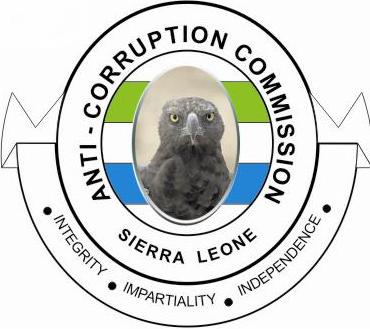The black global struggle has always witnessed the emergence of public intellectuals from America to Africa. A public intellectual is often a well-known specialist in a particular field, who is comfortable and confident enough to communicate conversations in this particular field through academia, media, and popular culture.
Francis Ben Kaifala is THE LEADING public intellectual in Sierra Leone. I have watched him closely. The Anti-Corruption Commissioner is smart enough to walk in the footsteps of the black public intellectuals who contributed to the liberation of us as a people.
At the start of the 20th Century, Booker T. Washington and W.E.B. Dubois were two of the sharpest black brains. Even though they disagreed philosophically on black liberation, these two fine gentlemen were never scared to share their thoughts in the public sphere. Marcus Mosiah Garvey, who came later, continued in this similar tradition.
The Jamaican-born political activist was best remembered for communicating his Garveyism ideology through speeches, essays, and short letters.
In the era of the Civil Rights Movement, Martin Luther King and Malcolm X were the names that took center stage. As Martin Luther King preached his gospel of peaceful change and racial integration in the late 1950s and early 1960s, Malcolm X delivered a different message – black nationalism.
Whilst Martin Luther King Jr. was poetic and sermon-centric with his delivery, Malcolm X electrified urban audiences with his eloquent prose and inspirational style. The two black intellectuals might have ideological differences but never hesitated to engage in the pulpit, podium, or publishing house.
This tradition of black public intellectualism was also present in the continent during the colonial days. Even though this aspect has dwindled over the years, the intellectual impact of the forefathers of the African independent struggle cannot be over-emphasized.
Nelson Mandela, Patrice Lumumba, Robert Mugabe, Julius Nyerere, Kwame Nkrumah, and Jomo Kenyatta were great orators. They utilized their speaking skills to rally the nationalistic base towards a cry for freedom (something which they all achieved).
Francis is simply walking in the footsteps of these black thinkers, speakers, and writers. Most people tend to sleep on the fact that the barrister’s rise to fame was through public punditry. By the turn of 2010, he actively used social media to provide commentary and analysis on issues around politics, public policy, and governance.
His blueprint was something I adopted over the years.
Despite the volume of work at the Anti-Corruption Commission, the barrister creates time to teach, grant media interviews, deliver public speeches, and write for global publishing platforms.
He understands that the liberation of black people can be triggered through public engagement with officials meant to lead the struggle. This was one of the many reasons he empowered the Public Education and External Outreach Department to bring the nation along in the war on corruption.
As I watched him speak at Fourah Bay College last week, I concluded that Francis Ben Kaifala is the leading public intellectual in Sierra Leone. He does not have a dominant domain. He can speak from the church pulpit or an academic podium; he can write for a newspaper or a human rights blog; he can invite the press to his office or honour the call to be at a media house; he can use social media to engage his followers or got his name dropped in pop culture trend for his fans.
Francis understands that his work at the Anti-Corruption Commission is the start of a purpose-driven life. He studied the iconic black intellectuals that graced the planet. He can make his message count through his writings and words for the public sphere.
Paul A. Conteh
Lecturer, Department of Sociology & Social Work Fourah Bay College




